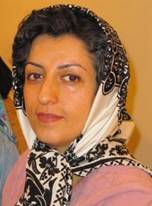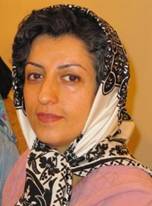Let’s break with tradition and do the sex part first. Yes, it has been suggested that there is a sex angle to the accidental shooting story of president Aziz in Mauritania! This is a quandary, as everyone is adamant that they do want the truth, but at the same time, no one wants it to be some sordid and sleazy tale of the president having an illicit relationship that went horribly wrong, and got him shot or injured or whatever. And yet, in the absence of any reasonable, logical and reliable alternative explanation, more people are gravitating towards this very unofficial yet somehow more credible version of events. I have to say right here: I have no way of knowing if the president was even attacked, let alone shot. All I know for certain is that something happened to him, and I have nothing to rely on apart from outright lies and half-truths peddled by the corrupt regime, or the meandering fantasies of observers (myself included!) whether inside or outside Mauritania.
In trying to keep an open mind I have to allow for two possibilities: that what happened to Aziz might have been staged, or might have been an accident. For me, only his prompt return will confirm the latter. Despite my efforts, I find myself increasingly convinced France and Mauritania are playing a dirty game, one designed to promote the prospect of a military misadventure in Mali. I could not for one moment believe that they are the only countries involved in such a farce.

Aziz’ post-surgery TV appearance last week reveals a gauze dressing on the left side of his lower neck
We have the president of Mauritania holed up in the Percy military hospital in Paris for additional care of an unspecified nature, despite being told his injuries in the October 13th incident were minor, and that the surgery performed in Nouakchott military hospital was a success. Close inspection of the footage of president Aziz’ post-surgery TV appearance last week reveals a gauze dressing on the left side of his lower neck, despite having the sheets pulled up to conceal it. Whatever happened in that area, it is unlikely to be related to the bullet which reportedly damaged in his colon and required a delicate 4-hour surgery.
Four days after the incident, when the French Minister of Defence, Jean-Yves Le Drian, paid a “social call” on Aziz, there was a small patch of scarred skin visible on Aziz’ neck, just visible above his over-sized pyjamas. It is difficult to tell what; it could just as easily be a bullet wound or a burn. This is the time to note that the Percy hospital specialises in the treatment of burn injuries. The photos of Aziz and Le Drian were posted on the official ami.mr news site [ar] in Mauritania later on Wednesday, but not on the French Ministry of Defence website. The visit was largely ignored by the French and international media, despite Le Drian having just been widely quoted the day before promising military action in Mali in “weeks, not months“. There was no press release, and the visit was not mentioned in the minister’s official engagements diary. A request for comment from the Ministry’s press office had not received a response at the time of writing this post.
Then there is the mystery of Ba Mamadou dit Mbaré, the only constitutionally legal replacement in case of the Mauritanian president’s incapacity, as President of the Senate. It was only discovered after Aziz left for Paris that Mr dit Mbaré was already on sick leave there himself. No mention had been made of this in any official media, and he was being reported on as normal, attending to his duties, until a few weeks ago. There has been no statement even now the news is out, and no comment on the nature or likely duration of his medical condition. This is being played as a non-issue, with officials asserting that Aziz is well enough to perform his duties while undergoing treatment. And so, for a week now, the country has been governed by an absent president, sundry unelected government representatives, and his Chief of Defence. The regular Thursday cabinet meeting was cancelled – this is important: because Aziz is the only validly elected official in the entire government, he has to sign off on everything, and every cabinet meeting has to be an “emergency meeting” convened by the president.
Now we are told that the French embassy is denying the President of the National Assembly, Messaoud Ould Boulkheir, a travel visa to Paris. But this is not quite accurate. What is really happening is Ould Boulkheir allegedly objecting to being asked to attend the consular office to give his fingerprints in order to create his visa. Ould Boulkheir holds one of three posts named in the constitution as having the power to declare Aziz unfit to serve, and through this manufactured stalemate, he is effectively prevented from going to Paris to assess the president’s true condition and raising the alarm if required. The other two are the Prime Minister (Laghdaf, a lapdog) and the head of the Supreme Court (the incumbent was recently replaced before the end of his official tenure by Aziz).
While this play unfolds, the external PR and media offensive is being ramped up: trying to tie the “shooting” to terrorists; claiming Mauritania is “seriously concerned” about the terrorist threat; re-hashing of any old news story mentioning AQIM and Mauritania. Over to the East, it would seem we are witnessing a replay of events, uncannily similar to those which preceded the NATO force’s arrival in Libya last year, in which someone busted jihadist contractors out of prison presumably to boost the rebel forces in northern Mali and for all we know, financed by a bank robbery in Yemen. This contrasts with almost total silence about conciliatory gestures being made through negotiations between various groups, and last weekend’s regional Tuareg conference in Lere, Nigeria. We should be on the lookout for increased reports of hostile actions: violence, beatings, rapes, robberies, etc, followed by more in-fighting and divisions. We should also pay attention to a developing story [fr] from Mali, of northerners who originally fled returning home despite the imposition of Sharia by the Islamists, and finding free though erratic power and water supplies, reduced food prices, and paid work. Poverty and misery in the south is said to be providing the impetus for the reversal. Word of this will spread to the refugee camps and, as winter sets in, repatriation could become an increasing trend. No wonder one of the NLP-type catchphrases in the media for the Sahel is “a race against time”. [See here, here, here and here]
Internally, the website Sahel Media was mysteriously unavailable to users in Mauritania of the Mauritel phone service (51% owned by CMC Morocco Telecom) for almost an entire day. Access was lost almost immediately after Sahel Media published a story [ar] about French Islamists* breaching the Western Sahara barrier built by Morocco, near the border with Mauritania, through which is being smuggled cocaine from Colombia. Sites carrying articles quoting AQIM supposedly threatening France remained freely accessible.
Sunday night, Mauritanian national TV produced the poor sap who has been named and shamed as “the shooter” – a rookie lieutenant from Kiffa whom we are told “is normally based in the north”. He was shown on TV [vid, ar] at prime time, to reinforce the official story about mistakenly firing on Aziz as the president sped past him, in an unmarked car, at top speed. Even after a whole week to prepare and rehearse, there were inaccuracies in the retelling between this on-air confession, and the original official statement [NYT En], and even the words of the president himself [CSM En].
Meanwhile, Al Jazeera managed to do a 2-part interview [vid, ar] with Mahfouz Ould al-Walid, aka Abu Hafs al-Mauritani, the former Al-Qaeda number 3. The interview took place inside Mauritania, where one might expect he would be under strict orders not to talk to the media about his former role with Al Qaeda, as a condition of his recent release from custody. This would appear not to be the case, but even if there are objections, Aziz has his “I was in Paris” alibi. I am actually hoping that both the US government and the jihadists in Mali take notice of Abu Hafs, because he talks a lot of sense.
As for the Mauritanian political opposition, they collapsed like a gurney before the bullet hit the kidney-dish, and declared they would suspend all planned protests out of respect for their opponent’s debilitated state. At this point, please note that every previously elected member of government – ruling party as well as opposition – has collected a year’s salary gratis out of the state coffers, while the poverty-stricken population waits to hear yet another excuse for why there is still no date for either of the postponed elections. The opposition did not stand idle however: they called for an investigation and convened a standing committee to try and determine the true events of October 13, and have called a press conference for Monday 22 October. One of them, Mohammed Ould Moloud, kept busy with a series of meeting with officials from various EU countries.
The only breath of fresh air in this whole stinking scenario once again comes from the activist movement of 25 February [ar], who formed a human chain along the main street of Nouakchott last Thursday, each one of them silently holding up a poster which totally captures the mood of the country at this time: a large, solitary “?”.
Some of the members of “m25fev”, as they are known, will be interviewed on Chinguetti TV tonight or tomorrow, if all goes to plan. The best part of the silent protest was that the police didn’t attack or arrest the demonstrators. The next day the police rediscovered their calling, and attacked and arrested the peaceful pro-morality protesters. People have to remind themselves every time this happens (and it happens too often) that Mauritania is an Islamic Republic.
*For more on France as a breeding ground for Islamists, see Marc Sageman’s 2004 article “Understanding Terror Networks”. Or Google.
Related articles
- Mauritania: President Abdel Aziz Shot, Speculation Ensues, and the Opposition Begins to React (sahelblog.wordpress.com)
- Bouncing Bullets: The Accidental Shooting of a President (lissnup.wordpress.com)
- Mauritania’s Protest Movements















